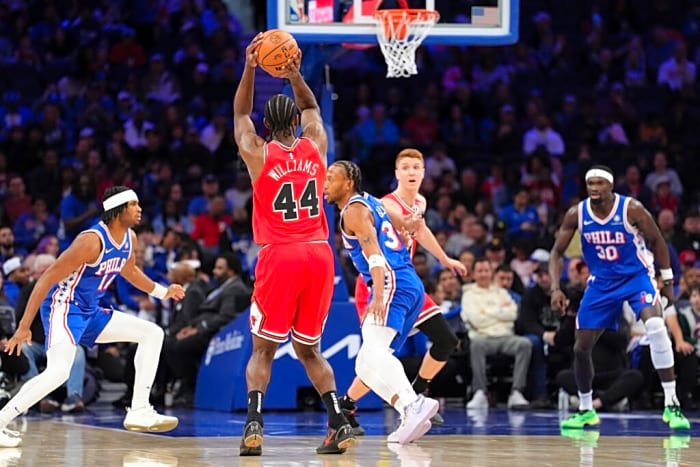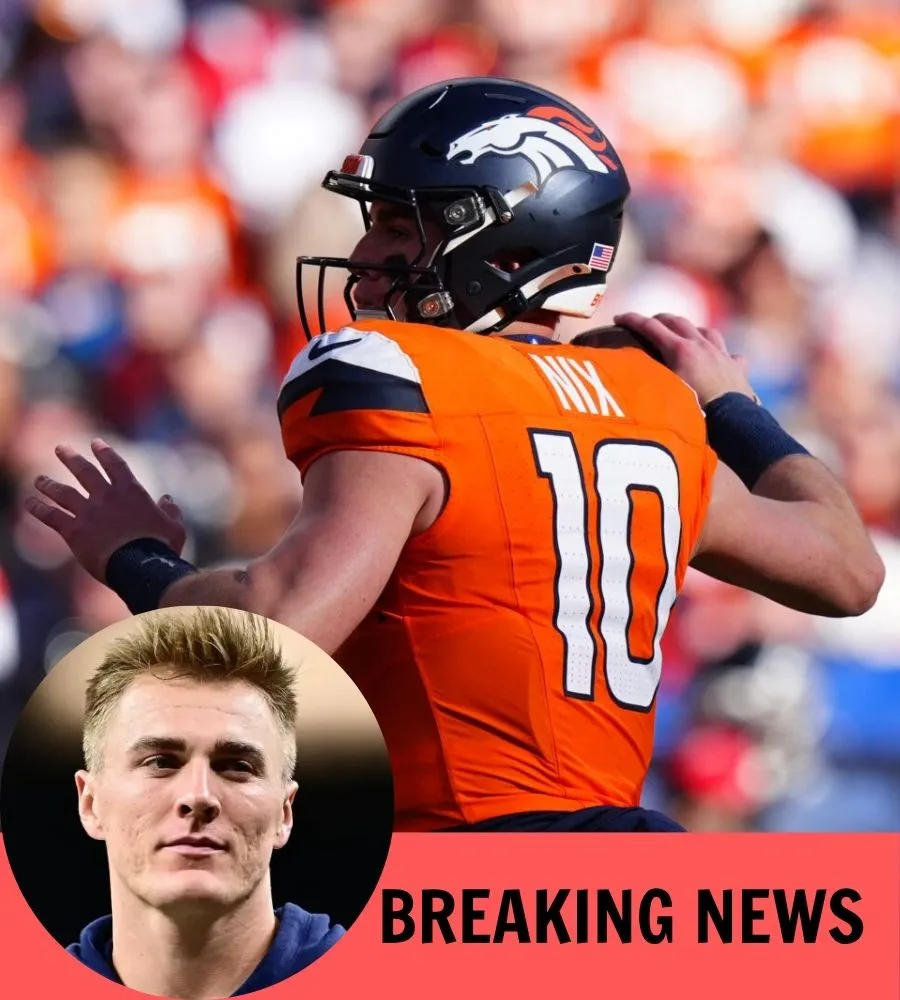The NBA Draft is rapidly approaching this Wednesday after weeks of anticipation. The Chicago Bulls have various directions they can go with the 12th overall pick, a pick that will be crucial in defining the direction of the team’s latest rebuild. Before the Bulls are on the clock, I decided to go back into the team’s draft history and rank their worst draft selections. With that being said, here are the five biggest Bulls draft busts of all time.

Ranking the Top 5 Biggest Draft Busts in Bulls History
Honorable Mention: Jay Williams
Drafted: 2nd overall (2002)
Notable players passed on: A’mare Stoudemire, Nene, Caron Butler
Jay Williams will forever loom as one of the biggest “what-ifs” in franchise history. Williams is listed as an honorable mention due to the debate of whether or not injuries make a player a bust.
The Bulls received their fourth-ever top-two pick in the 2002 draft lottery, after finishing with the league’s worst record (21-61, tied with Warriors) for the second straight season. In hopes of finally giving the team a new identity in the post-Jordan era, the Bulls selected Williams. Williams had an outstanding career at Duke. He averaged around 19/4/6 over three seasons, helped anchor the Blue Devils to a championship in his sophomore year, and won the AP Player of the Year award in his junior year before declaring for the NBA Draft. He ranked as the consensus number-one guard prospect in the class.
In his rookie year, Williams looked promising under limited minutes (26.1 per game). He averaged 9.5 points and 4.7 assists while showing flashes of potential stardom. Unfortunately, Williams crashed his motorcycle into a streetlight in the summer of 2003, where he suffered a fractured pelvis, torn knee ligaments, and a severed nerve in his leg. He played just one season for the Bulls before the crash, which sadly prevented him from ever playing basketball again.
5. Patrick Williams
Drafted: 4th overall (2020)
Notable players passed on: Tyrese Haliburton, Tyrese Maxey, Desmond Bane
Enough time has passed in Patrick Williams‘ Bulls tenure to rank him on this list. There was lots of hype surrounding the fourth overall pick in 2020, as it was the lowest pick the franchise has had since winning the Derrick Rose sweepstakes in 2008. Williams caught the Bulls’ eye at fourth, as someone with the potential to develop as an elite, high-ceiling two-way player.

Unfortunately for Chicago, Williams has not developed into anything close to this. He has made no improvements on offense since his rookie year and has battled constant, lingering injuries. In his five seasons with the Bulls, Williams has not averaged more than 10 points for his career. He has recorded pedestrian career averages of 9.6 points, 4.1 rebounds, and 1.5 assists per game. His averages have largely stayed the same since year one, due to Williams’ passive style of play. He still plays scared and does not capitalize on creating opportunities and taking open shots. Williams actually regressed with his outside shooting last year, shooting a career-low 35.3% from the three-point line. Additionally, his poor ball handling has also caused him to turn the ball over at inopportune times.
To make matters worse, late lottery pick Haliburton has blossomed into a star. While it is easy to say that the Bulls should have drafted him in hindsight, reports have indicated that Haliburton “begged” the Bulls to draft him. Considering that the Bulls needed a point guard at the time, it is clear that GM Arturas Karnisovas did not do enough due diligence on Haliburton. Passing on him for Williams may prove to be one of the franchise’s biggest mistakes.
4. Stacey King
Drafted: 6th overall (1989)
Notable players passed on: Mookie Blaylock, Tim Hardaway, Shawn Kemp
The now fan-favorite commentator in Chicago was a rare disappointment as a player during the Jordan era. Stacey King was regarded as one of the top draft prospects in the 1989 draft class after a monster senior year at Oklahoma. He averaged 26 points, 10.1 rebounds, and 2.3 blocks per game. King looked like a future superstar and was a prospect that the Bulls could not pass up at sixth, as he looked like a guy who could provide a necessary, strong frontcourt presence.
However, King sadly never panned out to his full potential. While he contributed as a role player on the Bulls first three championship teams, King never developed into the All-Star that scouts thought he would become. King struggled to use his body to his advantage on defense, which resulted in him struggling to grab boards and efficiently guard his assignments. Over four-plus seasons with the team, King averaged just 6.6 points, 3.3 rebounds, and 0.5 blocks per game before being traded to Minnesota for center Luc Longley.
3. Marcus Fizer
Drafted: 4th overall (2000)
Notable players passed on: Mike Miller, Hedo Turkoglu, Michael Redd
Although the 2000 draft class is historically regarded as one of the weakest the NBA has seen, Marcus Fizer did very little to turn that narrative around. Fizer had an electric scoring ability at Iowa State, where he averaged 22.8 points per game in his junior year. The Bulls selected Fizer with hopes that he could develop into one of the league’s next dominant big men.
Sadly, Fizer’s tenure with the team was far from dominant. Fizer struggled with injuries throughout his career and lacked the athleticism to bring his gameplay to the next level. In just four seasons with Chicago, Fizer averaged 10.5 points, five rebounds, and 1.2 assists. The Bulls opted not to protect Fizer in the 2004 expansion draft and let the Charlotte Bobcats select him, bringing an abrupt end to a forgettable stint in Chicago.
2. Brad Sellers
Drafted: 9th overall (1986)
Notable players passed on: Scott Skiles, Dell Curry, Mark Price
Although the Jordan era resulted in bringing six championships to Chicago, the road to the Bulls’ first title was not without missteps. Brad Sellers spent four years playing for Wisconsin and Ohio State, where he averaged a career 16.6 points, 9.8 rebounds, and 2.5 blocks per game. Sellers’ senior year put him on the lottery pick radar, where he averaged a career-high 12.6 rebounds. This stellar rebounding ability intrigued the Bulls into drafting Sellers with their ninth pick, in hopes that Sellers could develop into the number one frontcourt option.
However, Sellers proved to be a poor fit for the Bulls. Rumors swirled that Michael Jordan wanted the team to draft Duke point guard Johnny Dawkins with the pick. If the rumors are true, Jordan had the right idea. Sellers was too skinny and not physical enough for an NBA frontcourt, which resulted in him struggling offensively. The once gifted rebounder averaged just 3.5 rebounds per game and scored a middling 8.3 points per game over three seasons with the Bulls. Sellers’ failure to develop offensively resulted in the Bulls trading him for the 18th pick in 1989, which turned out to be All-Star point guard B.J. Armstrong.
1. Tyrus Thomas
Drafted: 4th overall, acquired in draft-day trade with Portland (2006)
Notable players passed on: Brandon Roy, Rudy Gay, Rajon Rondo, Kyle Lowry
Draft-day trades always have the potential to end in disaster. The 2006 NBA Draft is a prime example, where the Bulls initially held the second overall pick. They initially drafted LaMarcus Aldridge with the pick but instantly dealt him to the Trail Blazers for Tyrus Thomas, who was selected two slots lower at the fourth pick. Thomas averaged 12.3 points, 9.2 rebounds, and 3.1 blocks per game in his lone season at LSU. Then GM John Paxson viewed Thomas as the more physical and athletic prospect with a higher upside.
However, Thomas failed to efficiently develop his fundamental skills. He relied too much on his athleticism and was unable to become a reliable player on either end of the ball. In three-plus seasons with the Bulls, Thomas averaged just 7.8 points and 5.1 rebounds per game, a far cry from his freshman year at LSU.
On the contrary, Aldridge became a star for the Trail Blazers and established himself as one of the league’s top power forwards. He made seven All-Star appearances over his career and averaged 19.1 points, 8.1 rebounds, and 1.9 assists per game.
The Bulls ended up trading Thomas to the Hornets (then Bobcats) at the 2010 trade deadline, marking an end to a disappointing Bulls career. It is safe to say the Blazers fleeced the Bulls in a trade that arguably ranks as the worst in franchise history. The circumstances behind the trade combined with lackluster production firmly place Thomas as the team’s biggest draft bust.

-1752810995-q80.webp)

